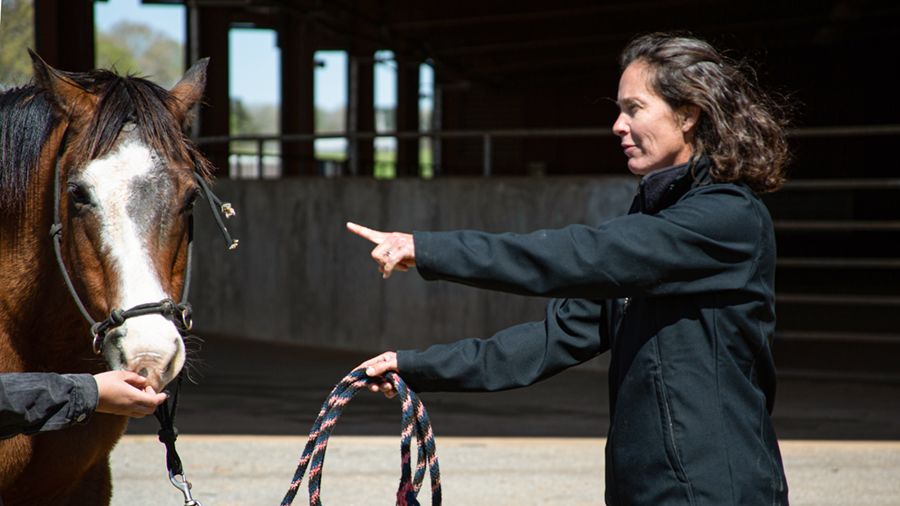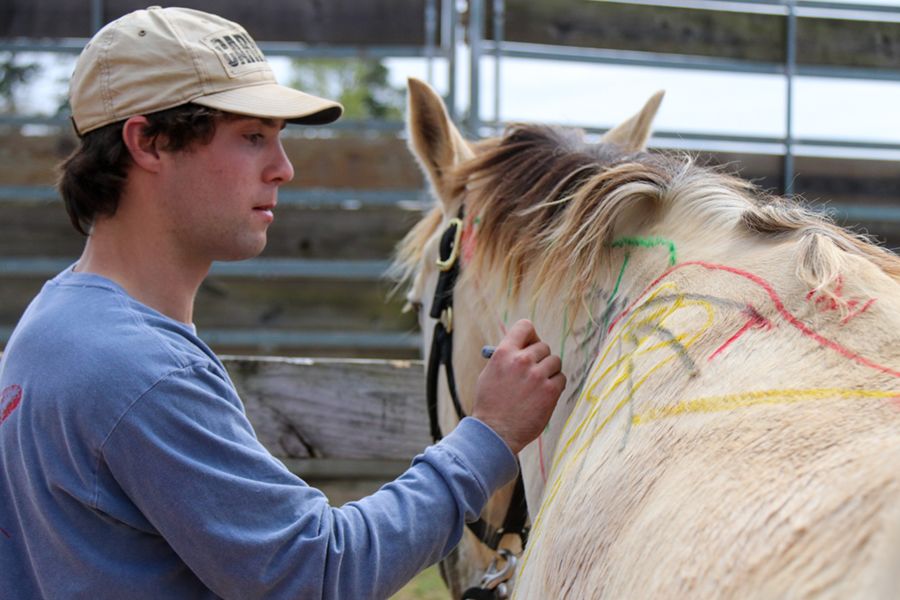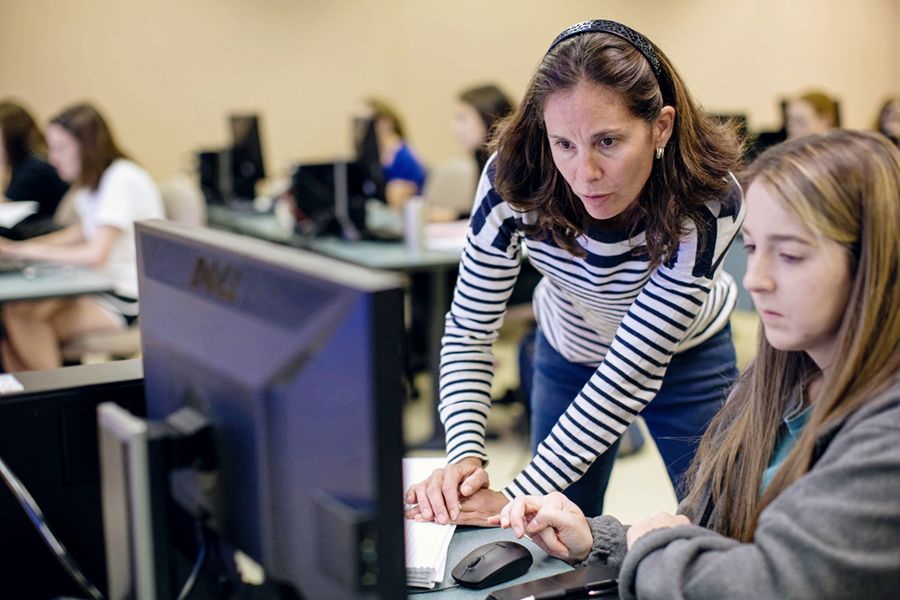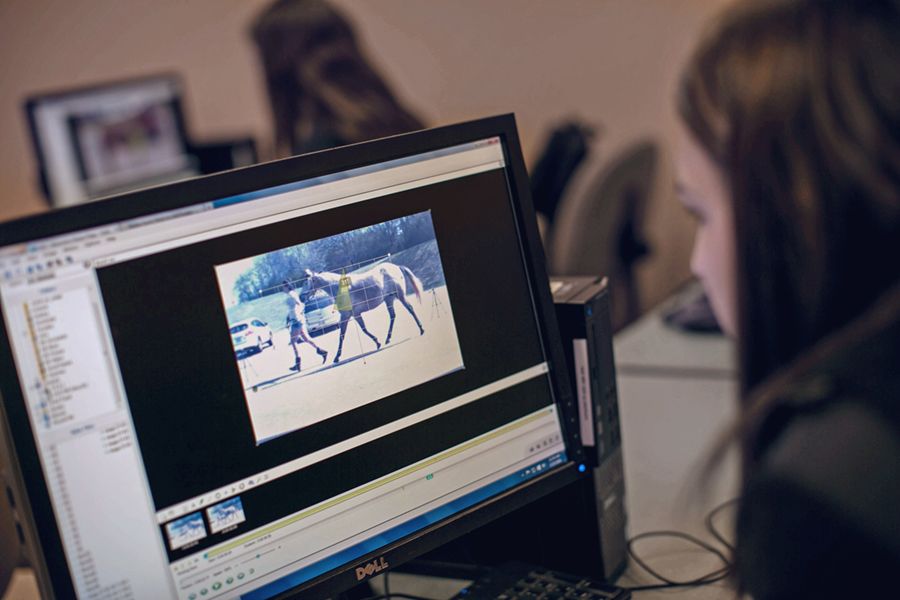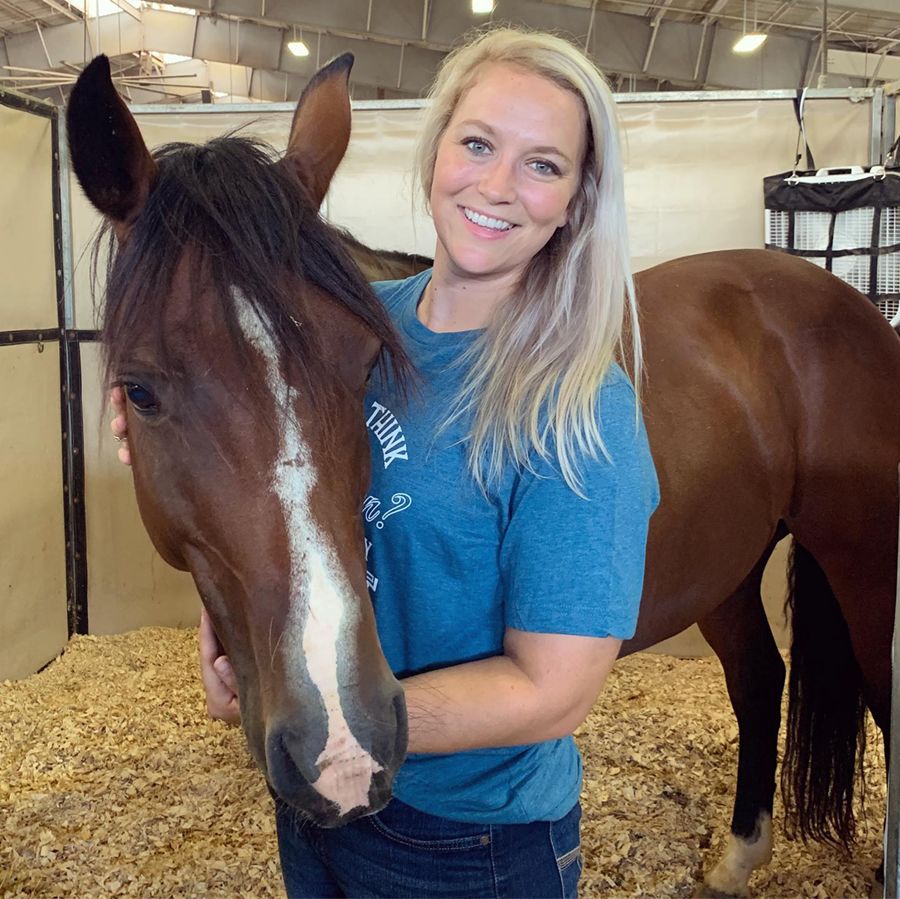Horsing Around
UGA equine experts inspire fascination through hands-on learning experiences
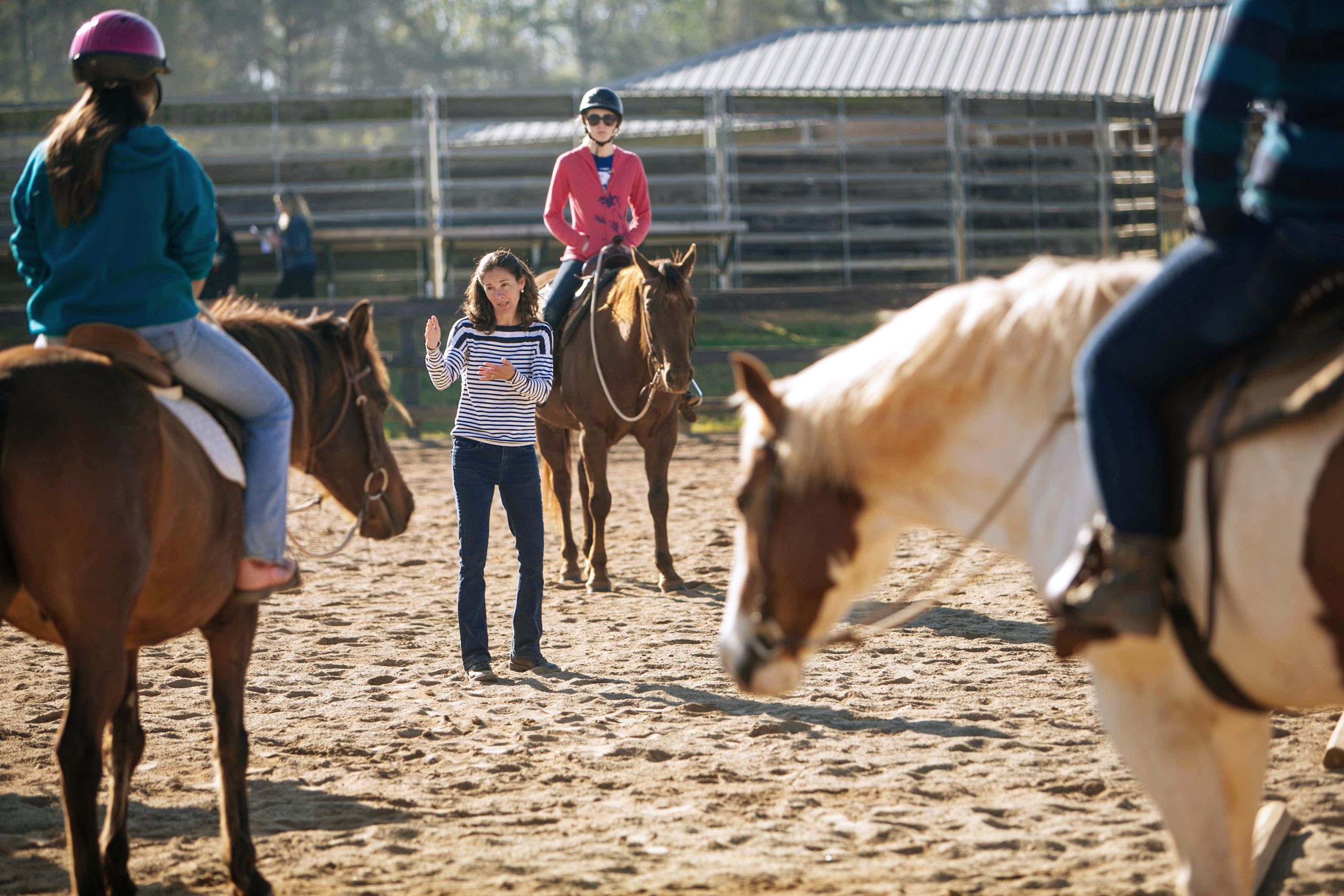
If you’re a horse person, you get it. Just watching, touching — heck, even smelling — horses is a feeling like no other.
Little wonder the students in the equine science program at the University of Georgia rank the hands-on experience as one of the biggest draws.
“I’m fascinated with horses,” said junior Kayla Costin. “My favorite part of the program has been working with them and observing and learning more about them.”
Costin echoes the sentiments of many students who gravitate toward the equine program, offered by the UGA College of Agricultural and Environmental Sciences, said Associate Professor Kylee Jo Duberstein. Most are women, self-described horse lovers working toward veterinary school.
The hands-on emphasis in the Department of Animal and Dairy Science feels natural to Duberstein, who grew up tagging along with her father, Ed Johnson, former head of the University of Florida’s equine program.
Duberstein gives instruction to a student at the livestock instructional arena.
Duberstein gives instruction to a student at the livestock instructional arena.
“I honestly don’t even remember learning to ride,” the Florida native said. When she was 12, Duberstein went to 4-H horse camp with her dad and watched the riders guide their horses over jumps. That’s when she swapped from Western riding to English, which culminated in riding Grand Prix jumpers — a sport where the jumps are massive and the pace is lightning fast.
That background uniquely qualifies Duberstein to teach both “Beginner Horsemanship” and “Operant Conditioning and Training of Horses.” She brings real-world experience to her other classes, including “Equine Nutrition” and “Anatomy and Biomechanics of the Horse,” and lectures about nutrition in horses at the UGA College of Veterinary Medicine.
A student in Duberstein's “Anatomy and Biomechanics of the Horse” class uses hair chalk to outline bones and muscles in their correct physiological location.
A student in Duberstein's “Anatomy and Biomechanics of the Horse” class uses hair chalk to outline bones and muscles in their correct physiological location.
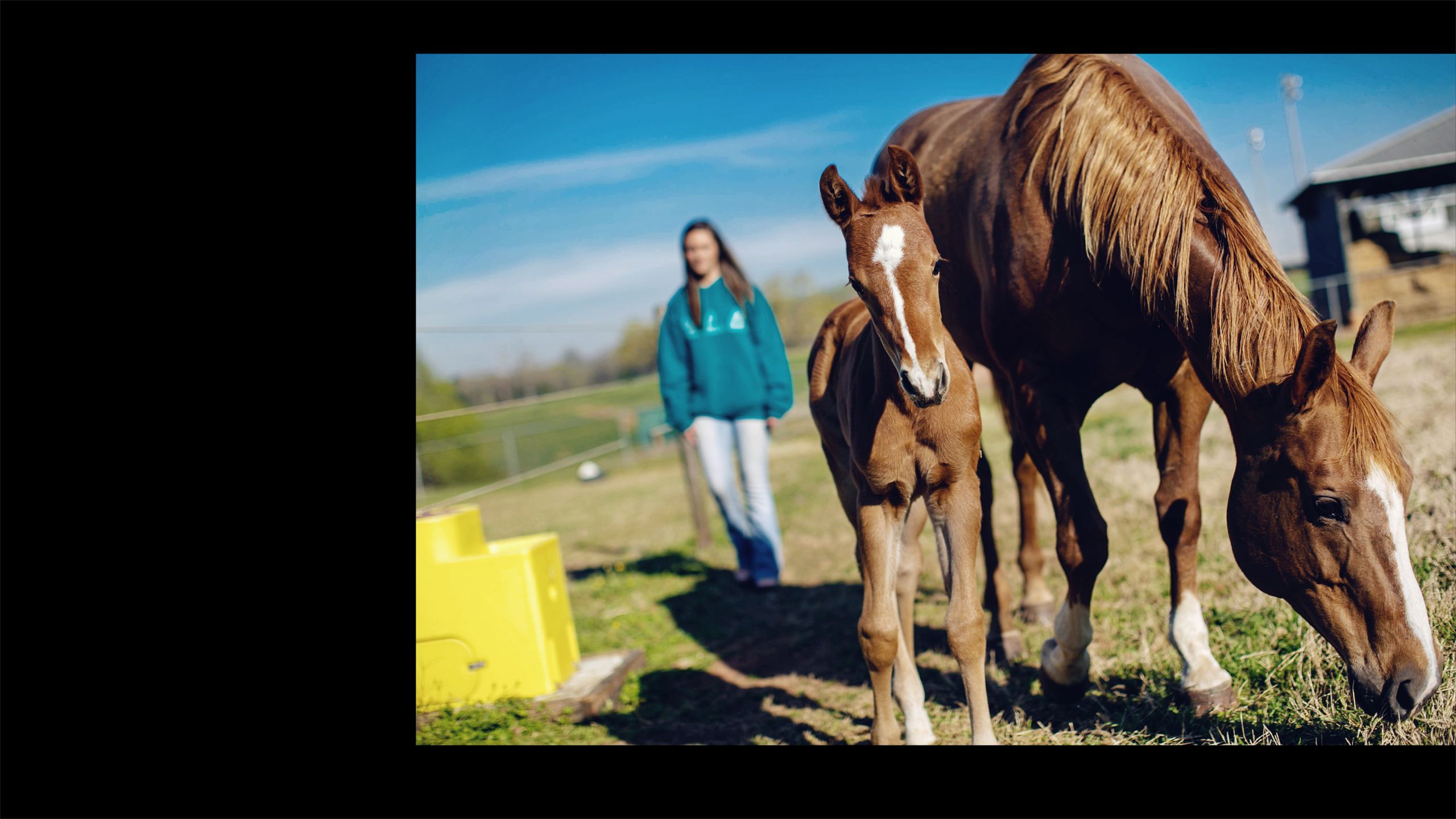
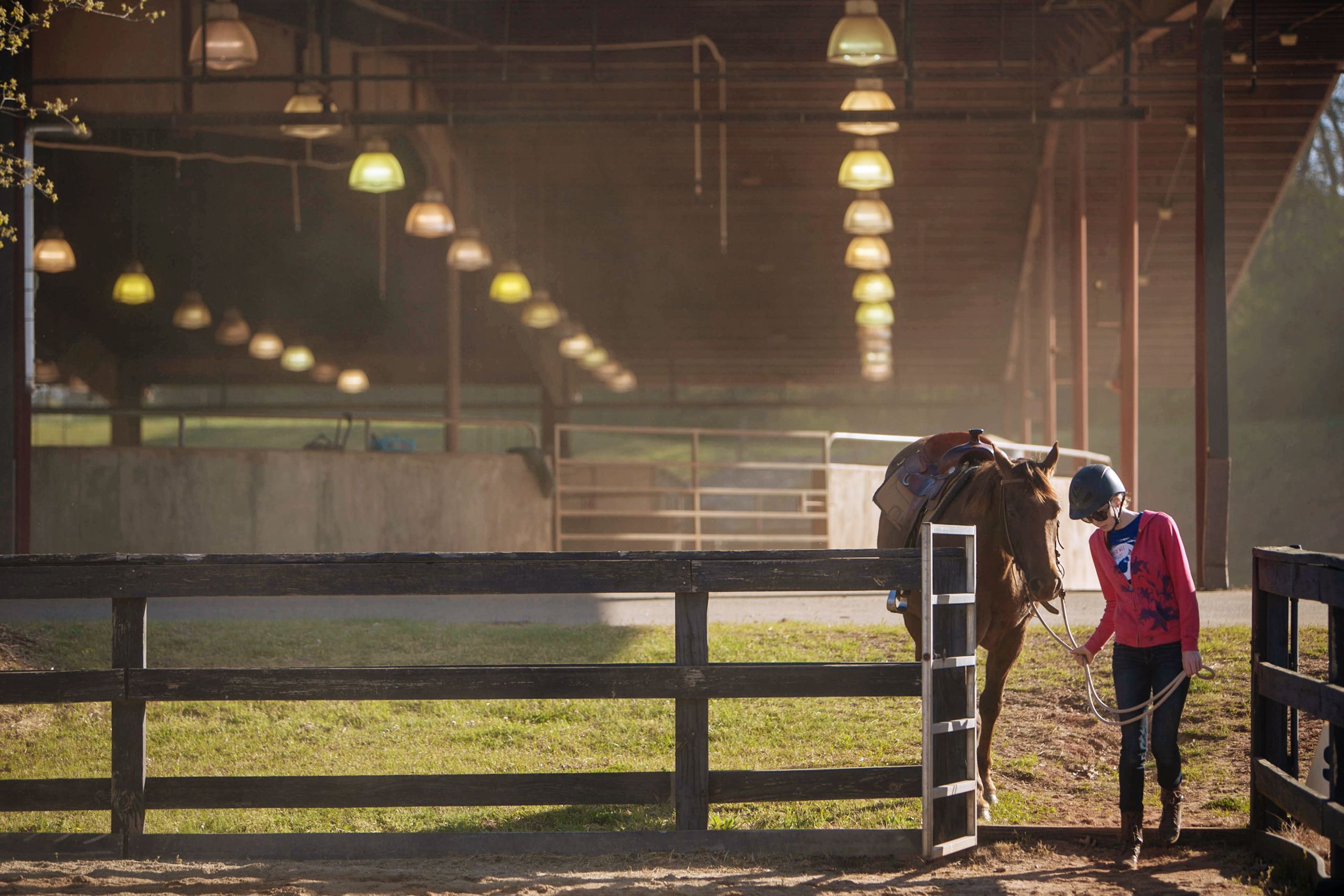
Duberstein imbues her research with her passion for horses, as well as passing it along to her students.
“I worked under Dr. Duberstein as an undergraduate and fell in love with equine research,” said Lexie Harvey, a 2021 animal science graduate now studying for a master’s degree in animal and dairy science. Supporting Duberstein’s biomechanics research, Harvey studied lateralization. Like people, equines tend to favor one side of their bodies over the other — think right-handed or left-handed — and the research team analyzed how a horse’s preference affects their gait.
As a result of her work in gait analysis, Duberstein was invited to collaborate on stroke and traumatic brain injury research using pigs at UGA’s Regenerative Bioscience Center. Pigs have a similar brain structure to humans and their recovery after a stroke correlates to human healing.
“Gait is a functional outcome of stroke,” said Duberstein. “The goal after a stroke is for the person to walk normally and unassisted. This is nothing I ever thought I’d have a skill set to contribute to. It was quite an experience teaching pigs to walk on a track.”
Harvey is focusing her master’s studies on equine-related nutrition research under Duberstein’s guidance.
“We’re researching forage utilization in horses to maximize digestibility and energy production,” primarily analyzing Bermuda grass hay, but also working with alfalfa and Sericea lespedeza hay, said Harvey, who hopes to eventually teach and perform research at the university level.
Through a joint appointment with UGA Cooperative Extension, Duberstein provides nutrition and pasture management consultations to county agents and horse owners or speaking to saddle clubs.
In Duberstein's horse Anatomy and Biomechanics class, students study the musculature and gait of horses using sensors and computer models.
Students attach Styrofoam balls coated in reflective tape to the anatomical locations of the horse's joints. The horses are filmed while in motion, and the students use a specialized software program to analyze the horse's gait and factors that might influence their movements, such as farrier techniques, lameness or training.
Newton County Extension Coordinator and Agriculture and Natural Resources Agent Ashley Best
Newton County Extension Coordinator and Agriculture and Natural Resources Agent Ashley Best
Similarly, Ashley Best combines her own lifelong love of horses with her position as Newton County Extension coordinator and Agriculture and Natural Resources agent. First photographed sitting on a horse when she was 2 years old, by age 7 Best was riding on her own. “I got my first real horse at 15 and it has been downhill ever since,” Best said with a laugh.
Through Extension, Best distributes The Leading Rein, a digital newsletter designed to connect the university with the state’s equine enthusiasts. She also shares equine-related information on the Newton County Extension Facebook page, offers a monthly virtual program called the Elevated Equine, and produces horse-related content on her UGA Extension blog.
“Horse people are getting their information from their veterinarians, farriers or friends,” said Best, who produces the newsletter with county Extension coordinators Brenda Jackson and Brooklyne Wassel.
A CAES alumnus in agricultural education, Best has received honors for her work from the Georgia Association of County Agricultural Agents (GACAA), including the 2021 GACAA Communications Award Newsletter award, the 2022 GACAA Outstanding Equine Programming Award, and first place in the 2022 GACAA Extension Education Poster contest.
“By doing The Leading Rein, we’re putting Extension resources more in the limelight. We have so much to offer,” she added.
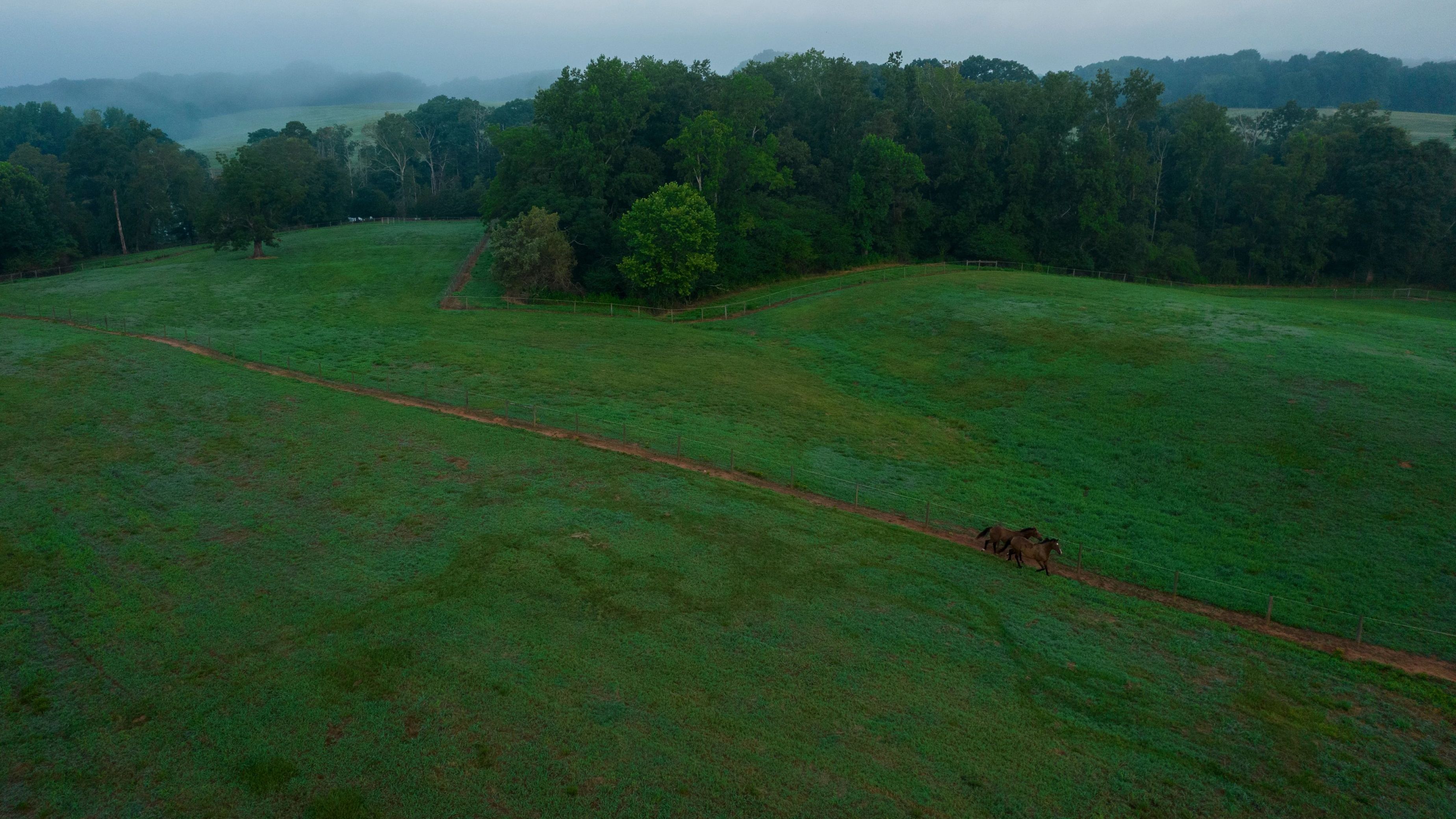
Did you enjoy this story?
Check out recent issues of the Almanac for more great stories like this one.

